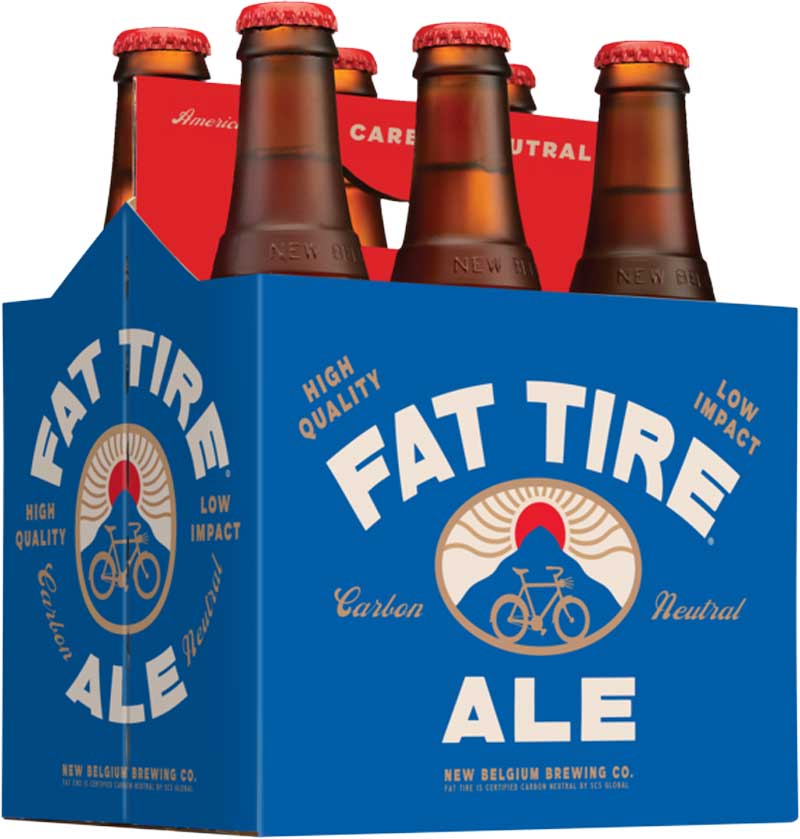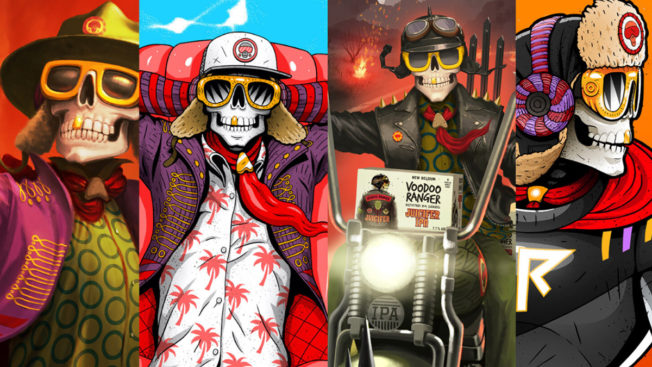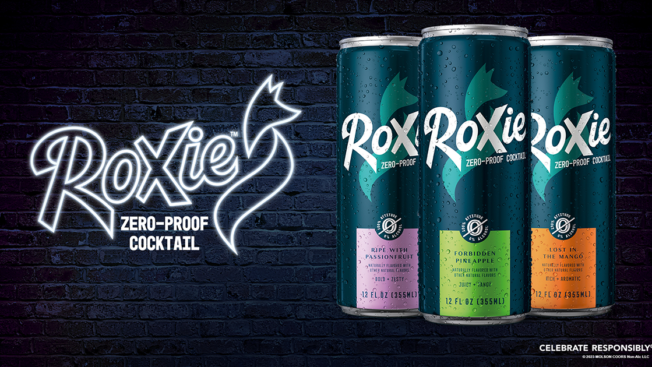For New Belgium Brewing, environmental stewardship has been at the center of its business since the beginning. But as the need for climate action becomes more pressing, it’s infusing that message into its flagship product, Fat Tire Ale.
The beer, brewed by the Fort Collins, Colo.-based brewery since 1991, has an updated look, color, recipe and position. Released this week with the tagline “high quality, low impact,” the new Fat Tire offers a “brighter, crisper” take on the decades-old beer. Despite the changes, brewmaster Christian Holbrook assures fans in a statement that longtime drinkers will “clearly recognize the original Fat Tire flavor.”
As more brands align their values with a climate-conscious consumer base, New Belgium’s Fat Tire Ale rebrand offers an example of how to build that focus into the foundation of a product. But it doesn’t come without risk.
“We wouldn’t be doing this work with the brand if we weren’t doing all of that [sustainability work] behind the scenes,” Katie Wallace, chief ESG officer at New Belgium Brewing, told Adweek.
“If we weren’t saying the same thing to our policymakers [and suppliers] that we’re saying to our customers … if we hadn’t seen some of that progress and been very committed to it through and through, we would not feel OK about putting this so central in our new branding,” she added.
First, do the work
New Belgium is unique in that it’s a medium-sized company with a legacy of prioritizing its people and the planet, said CEO Steve Fechheimer. Its size and structure lets it align all of its actions with the same purpose that underpinned its founding.
“We can carry a loud voice because of the size of our companies, but we’re not so large that we’re being handled in a different place,” Fechheimer said. “We’re this medium-sized business telling an important story about the real costs to our business in government not addressing these major issues.”
Though it was acquired by a Kirin Holdings subsidiary in 2019, it had been at least partially under an employee stock ownership plan since 2000. Co-founder Kim Jordan and other stakeholders sold the entirety of their shares into the ESOP by 2012.
While it’s no longer independent, the brand retains the ethos of its founders. Jordan, a social worker, and co-founder Jim Lebesch started brewing Fat Tire Ale out of their basement in 1991. As it grew, the company established a sustainability department in 2003, became a Certified B Corp and signed onto 1% for the Planet.

Then, design for your audience
In 2020, Fat Tire Ale became the first certified carbon-neutral beer on the market. Now, that fact lives front and center on the brand’s packaging.
To update the brand design, New Belgium worked with Austin, Texas-based design studio and creative consultancy LAND. The new logo and messaging draw inspiration from the pre-digital era in which Fat Tire Ale was first conceptualized, Wallace noted.
“All of that is meant to harken back to where we began in this space,” Wallace said. “Hopefully in a way that grabs climate advocates’ attention … My team can do everything we can do, but we’re still part of these bigger systems.”
The brand worked with agency Solve to develop 15- and 30-second spots to announce the new recipe and rebrand. Those ads will run during some of the NFL playoff games this weekend, Fechheimer said. That’ll be supported by nationwide samplings, plus a mix of outdoor, connected TV, local broadcast, digital and social media.
Fighting for ‘the only planet with beer’
Previously, the brand’s climate-focused marketing has been mainly relegated to stunts like 2021’s Fat Tire Torched Earth Ale, when the company created a beer made from ingredients it predicts will be left after climate change ravages the barley fields and water sources that brewers rely on. That included smoke-tainted water, dandelions and drought-resistant grains.
With the rebrand, that mission is incorporated into the beer’s everyday messaging, too. Language around the launch highlights the importance of climate action to protect “the only planet with beer.”
Wallace noted that some of the apocalyptic conditions simulated for the Torched Earth Ale project are already coming into play. “2021 was the worst year on record for barley harvest,” she said. “And because of the unrelenting heat, we had record-breaking wildfires right around our river that provides water for beer.”
The risk of change
Lightening up Fat Tire Ale tracks with the tastes of younger drinkers, according to Matt Simpson, owner of beer consultancy The Beer Sommelier. And reaching 21- to 29-year-olds is one of the goals of this shift, Fechheimer said.
Despite its position as New Belgium’s flagship offering, Fat Tire’s sales were down roughly 14% year over year in 2019 and 2020. Thanks in part to climate advocacy campaigns, the company said, that improved for 2021 and 2022—down just 5% for each of those years. The company wouldn’t share sales volumes but did say that Voodoo Ranger, New Belgium’s line of IPAs, surpassed Fat Tire “significantly” in recent years.
Still, it’s risky to make changes to a beer that’s been around for more than 30 years. It was the 16th best-selling craft beer in the U.S. last year, per New Belgium.
Changing the recipe isn’t something that Simpson would have done, he said, given the success that New Belgium has had with the brew. Still, he predicts the new recipe is something that its core fanbase will still enjoy, given the description.
“Fat Tire is unique. I don’t know of any other beers that are just like it,” Simpson said. “It fits effectively where American brown ale does, but a little bit lighter in color, and with Belgian yeast, which produces a different end.”














